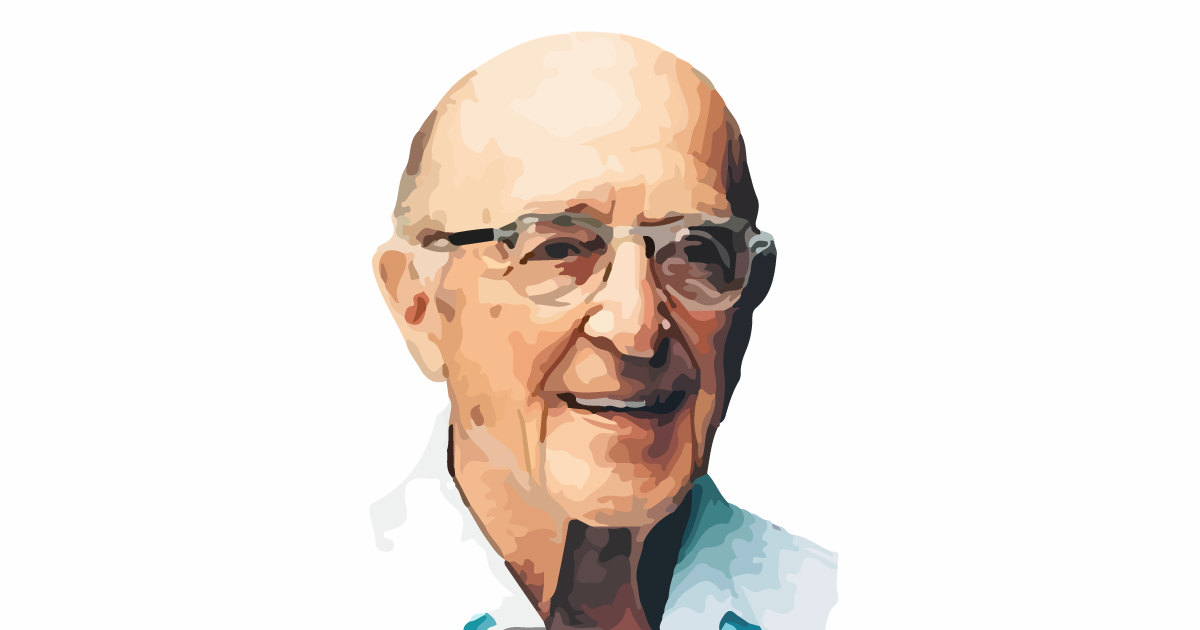
Counseling is primarily a treatment to bring a patient in a state of mental illness back to a healthy state. Therefore, it is impossible to directly apply this technique to coaching, which is a session with healthy people who wish to improve their performance. However, even in counseling, we can find a theory whose view of the human condition has had a profound influence on the formation of the modern concept of coaching.
Carl Rogers’ “client-centered therapy” is a representative example, focusing on the existence of “the intrinsic power of the organic person to improve himself or herself. In contrast to Freud’s psychoanalytic view of the human being (1900-), Rogers’ “psychology of human nature” became a mainstream counseling approach in the world after the 1950s.
In 1982, Rogers was ranked number one in the American Psychological Association’s survey of the “10 Most Influential Psychotherapists.
Today, the term “client” is commonly used to refer to the subject of counseling, but this terminology began with Rogers. In his theory, he changes the term from “patient” to “client (interviewee),” which is an equal relationship with the counselor, and establishes that counseling sessions should be thoroughly conducted from the perspective of the interviewee.
The central theory is “self-concept,” or how one thinks and perceives oneself, and the ideal state is one of self-congruence. Mental instability is explained as “a gap between who you are and who you want to be.
Differences between coaching, counseling, and consulting.
The “Basic Stance of Counseling” in the table, 1) Self-alignment, 2) Unconditional positive regard, and 3) Empathic understanding, are commonly referred to as “Rogers’ Three Principles,” and are also emphasized as basic attitudinal requirements for coaches in coaching sessions.
The same table, “Basic Stance of Coaching,” states that 1. people have unlimited potential, 2. the answer lies within them, 3. we are partners in bringing out the answer, and 4. we are the ones who can help them find the answer.
Rogers’ view of people is also based on his view of coaching, and he is the “mother of coaching,” a psychologist who has supported the formation of the concept.
(The above English translation is for a reference purpose only and a re-translation of the Japanese into English. Accordingly, please refer to the original text as appropriate.)
コーチング情報局を運営する株式会社コーチビジネス研究所では、企業を対象としたコーチング研修、ビジネスパーソンを対象としたビジネスコーチング、個人の方を対象としたライフコーチングを提供しております。その他、コーチングを学びたい方のためのコーチングスクールの運営、経営者やビジネスリーダー向けにセミナーを開催しています。興味や関心がございましたら、お気軽にご相談・お問い合わせください。
This article was written in Japanese and converted into English using a translation tool. We hope you will forgive us for any inadequacies.
Coach Business Laboratory, Inc., which operates the Coaching Information Bureau, provides coaching training for companies, business coaching for business people, and life coaching for individuals. In addition, we operate a coaching school for those who want to learn coaching and hold seminars for executives and business leaders. If you are interested or have any questions, please feel free to contact us for further information and consultation.


